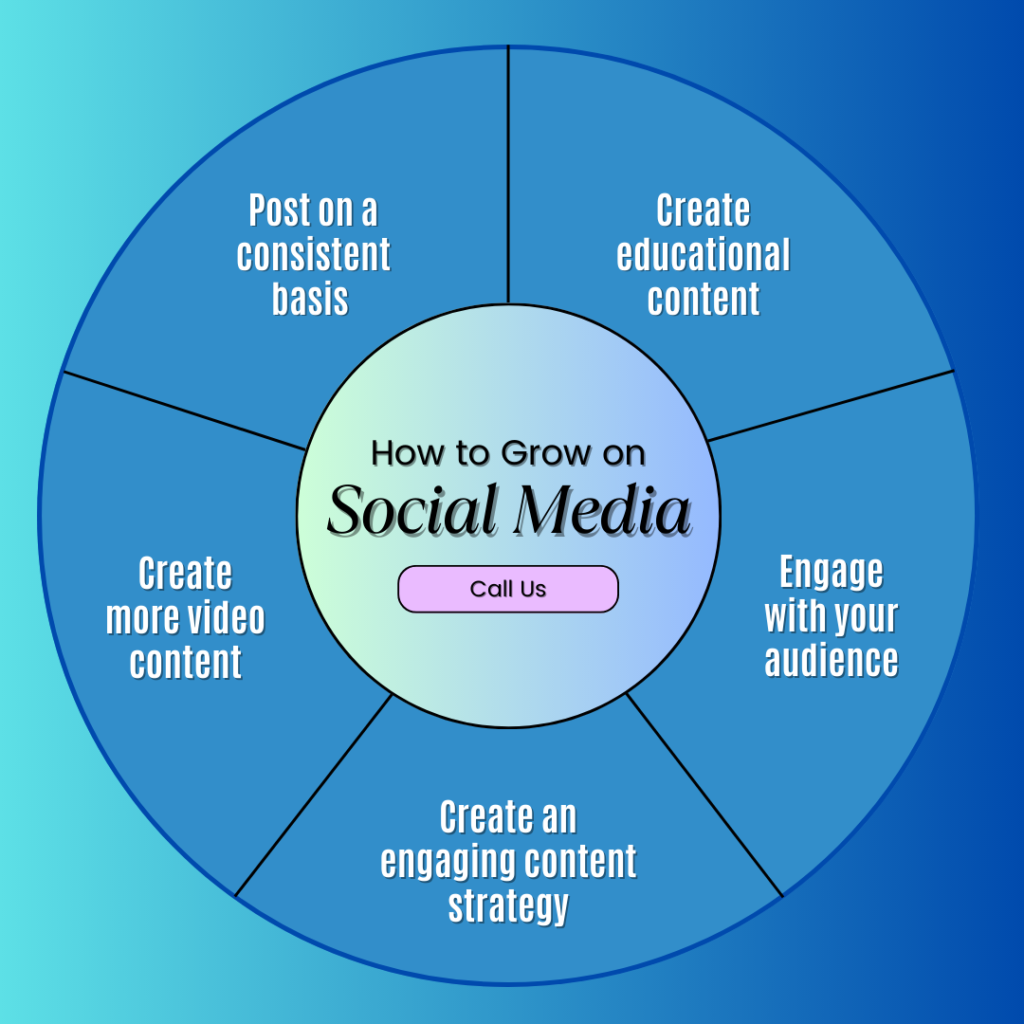In today’s digitally driven world, the significance of social media cannot be overstated. It is not just a platform for sharing personal moments; it’s a powerful tool for professionals to enhance their online presence, expand their network, and thrive in the business landscape. This guide is tailor made if you are ready to dive into social media but don’t know where to start. Let us unravel the strategies and insights you need to harness the potential of the most popular social media marketing platforms in professional settings.
The Power of a Strategic Social Media Marketing Start
Embarking on your social media journey begins with a clear strategy. Define your objectives, build your brand, network, or find new opportunities and tailor your content accordingly. Your social media presence should reflect your professional identity and offer value to your target audience. Before diving into social media, outline your objectives. Are you looking to network, showcase expertise, or promote your business? Clearly defined goals will shape your content strategy.

Strategic Platform Selection:
Transitioning to different roles, various platforms each have their unique strengths. LinkedIn encourages networking, Twitter’s strength lies in succinct insights, Facebook nurtures community engagement, and Instagram excels in visual storytelling. Tailor your social media approach to harmonize with your objectives. Disseminate valuable insights, industry updates, and original content, thoughtfully attuned to resonate with your intended audience. Uphold a consistent tone that authentically reflects your professional identity.
LinkedIn: Nurturing Professional Networks:
Positioned as the paramount platform for professionals nurturing connections, LinkedIn provides a conduit to network and advance within your career trajectory. Serving as a digital resume, it meticulously outlines your accomplishments, skills, and expertise. Maintaining a routine profile update rhythm, sharing enlightening industry articles, and actively participating in interactions with your connections’ posts perpetuate an enriched engagement. Embracing relevant groups cultivates an environment for knowledge-sharing, fostering the expansion of your influence across spheres.
Twitter: Impactful Brevity:
Harnessing its brevity, Twitter facilitates the dissemination of thoughts, insights, and industry developments through bite-sized content. Aim for a harmonious blend of original content and retweets that resonate within your professional domain. Employ relevant hashtags to amplify your visibility within specific dialogues. Engaging with fellow professionals, thought leaders, and influencers anchors a firm online presence, effectively radiating your expertise across the digital realm.
Facebook: Beyond Friends and Family:
While Facebook started as a personal platform, it has become a valuable space for professionals to engage with communities and showcase their expertise. Create a professional page separate from the personal account. Share industry insights, blog posts, and relevant news. Use Facebook Groups to connect with like-minded professionals and contribute meaningfully to discussions.
Instagram: Visual Storytelling:
Utilizing Instagram’s visual appeal, you can effectively showcase your professional journey. Employ it to share behind-the-scenes moments, highlight achievements, and offer insight into your work ethic. Engage your audience with compelling visuals, while captions add context and value to your posts. Furthermore, integrate visual content to captivate your audience, encompassing images, videos, and infographics that adeptly convey your message.
Content Consistency and Frequency:
Consistency is vital across all platforms. Determine a posting frequency that suits your schedule and stick to it. Quality trumps quantity; ensure each post adds value to your audience. Whether once a day or a few times weekly, maintain a steady flow of relevant, well-crafted content. Consistency keeps your audience engaged. Determine a posting schedule that suits your availability and stick to it. Quality content trumps frequency.
Metrics and Adaptation:
Social media platforms offer valuable insights into your content’s performance. Monitor metrics such as engagement, reach, and click-through rates. Analyze what works and what doesn’t, and adapt your strategy accordingly. Experiment with different content to find the right balance for your audience.

Your go-to source for Social Media Marketing Services:
When selecting an agency, look for one that will provide you with a comprehensive strategy. They should be able to help you create content, identify target audiences, and develop an engaging social media presence. Look for an agency with industry experience that can guide the best tactics to reach your goals. Additionally, they should offer insights into the latest trends in social media and how they can benefit your business. Finally, ensure the agency is open to feedback and offers regular reporting so you can track progress and make adjustments as needed. Considering all of these factors when selecting a social media optimisation agency, you’ll be well on your way to success.
1. Assess Your Needs:
Identify what aspects of your social media presence require improvement. Do you need to identify your goals, develop a strategy and decide on the metrics to measure success? It is also essential to define the scope of work and determine if you require full-service support or need help with specific areas. Once you have identified your needs, you can look for an agency that specializes in assistance with content creation, engagement, or overall strategy. Understanding your needs will guide your agency search.
2. Research and Shortlist:
Look for agencies with a proven track record in social media management services. Read client reviews, case studies, and examine their social media profiles. Shortlist agencies that align with your goals.
3. Evaluate expertise:
An effective agency should understand your industry and target audience. Evaluate their ability to create tailored content that resonates with your profession.
4. Collaborative Approach:
Choose an agency that values collaboration. They should be open to understanding your objectives, seeking your input, and incorporating your feedback.
5. Transparency and Reporting:
A reliable agency will provide transparent reporting on critical metrics. Regular updates on performance and strategy adjustments are crucial for success.
6. Customization and Flexibility:
Avoid agencies offering one-size-fits-all solutions. Your strategy should be customized to your unique goals and challenges. Flexibility to adapt to changes is essential.
7. Communication and Accessibility:
Clear communication is vital. Ensure the agency provides a dedicated point of contact and is responsive to your queries and concerns.
8. Budget Alignment:
Discuss pricing upfront and ensure it aligns with your budget. Remember that quality often comes with a reasonable investment.
9. Long-Term Vision:
Look for an agency with a long-term vision for your social media success. They should evolve their strategies as your goals evolve.
In summary, achieving mastery in the realm of professional social media demands strategic planning and unwavering dedication. Opt for platforms that align with your objectives, curate compelling content, and authentically engage your audience. When considering agency collaboration, diligently research, assess expertise, and seek a partner attuned to your specific requirements. By amalgamating these strategies, you’ll confidently traverse the social media landscape, amplifying your online presence. The social media realm offers ample prospects for professionals to thrive, learn, and connect. Shape a bespoke strategy, maintain steadfast consistency, and foster authentic engagement. Remember, it transcends mere likes and retweets; it’s about cultivating a meaningful digital footprint that mirrors your proficiency and aspirations. Embrace the potential of social media, unlocking a realm of opportunities for your professional journey.


